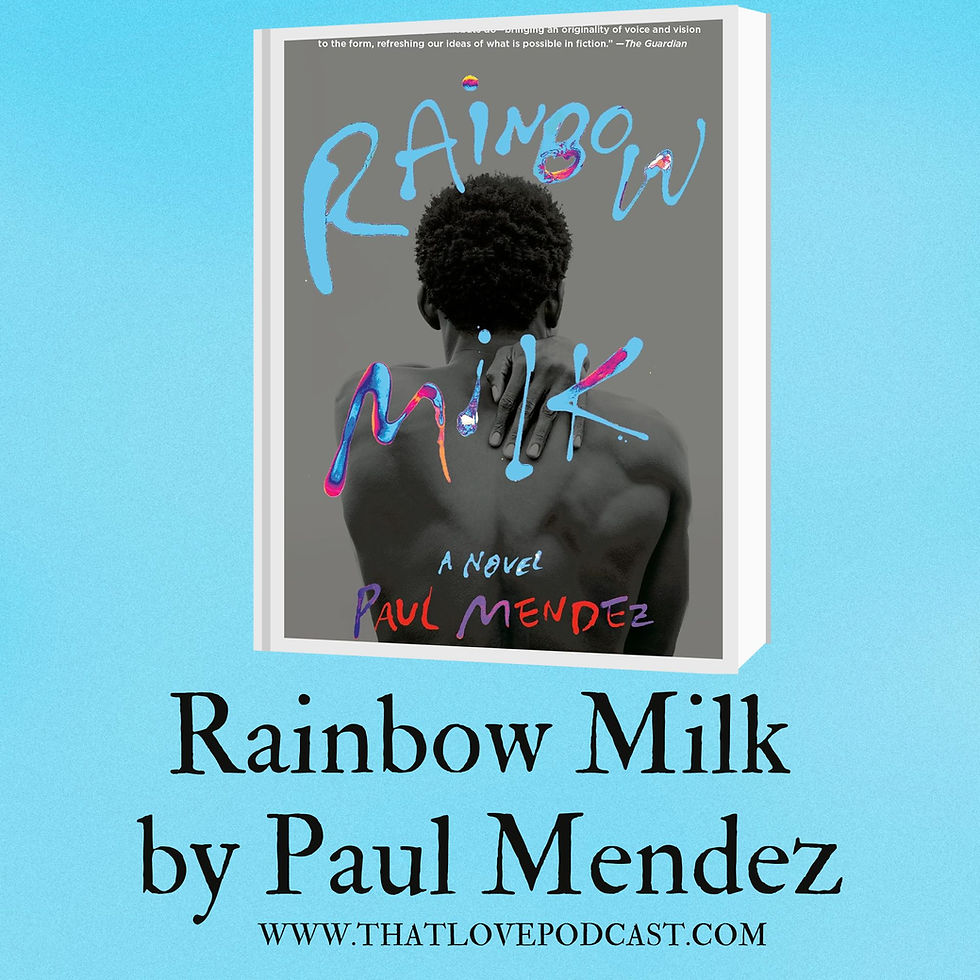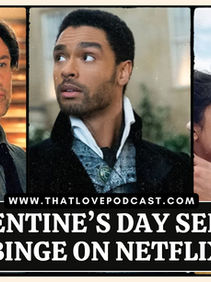Rainbow Milk by Paul Mendez Book Review: A Raw, Radiant Coming-of-Age Anthem That Roars with Pride
- Joao Nsita
- Apr 15, 2025
- 6 min read
Introduction
What does it feel like to shed the shackles of a world that rejects you and forge a life unapologetically your own? In Rainbow Milk (2020), Paul Mendez answers with a debut that’s as bold as a fist raised high and as tender as a first love’s whisper. This semi-autobiographical novel follows Jesse McCarthy, a Black gay teen from England’s Black Country, who escapes the suffocating grip of his Jehovah’s Witness upbringing for the gritty freedom of London. There, as a sex worker, he wrestles with race, class, and sexuality, finding solace in art, music, and fleeting connections. Mendez juxtaposes Jesse’s journey with his Windrush-generation grandparents, crafting a multi-layered tapestry of resilience and revelation. A Pride Month must-read, this book is a defiant shout of queer identity and a soul-stirring ode to belonging.
Want more stories that ignite the heart? Dive into That Love Podcast’s Romance Book Recommendations for your next unforgettable read!
Book Summary
Rainbow Milk opens in the 1950s Black Country, where Norman Alonso, a Jamaican ex-boxer, and his wife Claudette arrive as part of the Windrush generation, chasing a promised better life. Instead, they face racism and hardship, Norman’s failing eyesight a cruel twist to their dreams. Fast-forward to the early 2000s: Jesse McCarthy, their grandson, is a nineteen-year-old Jehovah’s Witness grappling with his identity. When his sexuality—burgeoning and undeniable—leads to disfellowshipment, he flees his repressive family and community for London. There, survival means sex work, a raw plunge into a world of desire and danger. Amid the chaos, Jesse discovers music’s pulse—Joy Division, Mary J. Blige—and tentative bonds that hint at love. Mendez crafts a dual narrative that’s both a coming-of-age odyssey and a generational echo, weaving Jesse’s quest for self with the legacy of his forebears. It’s a story of breaking free, unfiltered and unflinching, with a heartbeat all its own.
Author’s Style and Craft
Mendez wields a pen like a switchblade—sharp, fearless, and cutting to the bone. His prose is raw yet lyrical, a gritty symphony of Jamaican patois, Black Country burr, and London’s urban hum. The novel splits into two timelines: Norman’s first-person lament grounds us in the Windrush struggle, while Jesse’s third-person arc unfurls with visceral immediacy. Pacing is a rollercoaster—slow and tender in moments of reflection, then racing through Jesse’s sex-fueled nights. Dialogue crackles with authenticity: Jesse’s awkward “I’m fine” to a client contrasts with Owen’s gentle probing over Christmas beers. Mendez’s character development shines—Jesse evolves from a shamed teen to a man claiming his space, his voice growing bolder with every page. Music peppers the text like a lifeline, each song a breadcrumb on Jesse’s path to self-discovery. It’s a style that’s messy, honest, and utterly captivating, a debut that refuses to play it safe.
Themes and Deeper Meaning
Rainbow Milk is a kaleidoscope of identity—race, sexuality, and class refracting through a fractured Britain. Jesse’s journey is a defiant reclaiming of self, his Blackness and queerness a double-edged sword in a world that fetishizes and rejects him. The Windrush prologue is a haunting metaphor—Norman’s uprooting mirrors Jesse’s, two souls displaced by a nation’s broken promises. Themes of faith and freedom clash like thunder: the Jehovah’s Witness doctrine is a cage, London a wild expanse where Jesse tests his wings. Mendez probes deeper—racism’s insidious legacy, the intersections of oppression, the search for a chosen family. It’s Pride incarnate: a queer Black man forging his path amid the rubble of rejection. This resonates beyond the page, echoing societal battles for acceptance and the universal ache to belong—a raw, radiant call to live unbroken.
Strengths
Mendez’s debut is a gut-punch of brilliance. The emotional honesty floors you—Jesse’s Christmas with Owen, a housemate-turned-confidant, is a masterstroke, their banter over beers blooming into a quiet, electric intimacy. The Windrush opening is a tender wound, Norman’s resilience against racism a testament to grit. Mendez’s ear for accents—Jamaican lilt, Brummie drawl—grounds every voice in vivid reality, while his musical nods (think “Love Will Tear Us Apart”) weave a soundtrack to Jesse’s soul. The sex scenes? Unapologetically graphic, they’re less titillation, more a window into Jesse’s reckoning with desire and shame. This rawness is the book’s heartbeat, pulsing with a vitality that hooks you from the first page. It’s a celebration of survival, a queer anthem that doesn’t just whisper freedom—it roars it, enhancing every reader’s journey with its fierce, unbowed spirit.
Quote: “You’ve lost your centre of gravity, so to survive, you’ll need to take steps to create another.”
Areas for Improvement
Even diamonds have flaws. Rainbow Milk’s shift from Norman’s 1950s tale to Jesse’s 2000s arc feels abrupt—some readers might crave a smoother bridge between generations. The secondary cast—Jesse’s family, early London flings—fades into the background, their thin sketches leaving gaps where richer portraits could deepen the stakes. Dialogue occasionally stumbles, a clunky line here or there jarring the flow, especially in Jesse’s sex work scenes where rawness tips into redundancy. The ending, while hopeful, teeters on vague—those seeking a tidy bow might feel adrift. Mendez could tighten these threads, fleshing out side characters or pacing the prologue’s transition. Yet, for fans of messy, honest narratives, these quirks are less flaws, more the texture of a life laid bare.
Comparative Analysis
Rainbow Milk strides alongside Bernardine Evaristo’s Girl, Woman, Other (Amazon Link), both dissecting Black British identity with unflinching verve—though Mendez’s lens is narrower, rawer, sex-soaked where Evaristo’s is panoramic. Compared to James Baldwin’s Giovanni’s Room (Amazon Link), it shares a queer reckoning but swaps Baldwin’s poetic restraint for visceral grit. Against Oseman’s Heartstopper (Amazon Link), it’s the shadow to that light—where Heartstopper glows with innocence, Rainbow Milk wrestles with the muck of survival. Mendez challenges coming-of-age norms, fusing Windrush history with queer liberation, a debut that’s both a gut-wrenching mirror and a bold new voice in British fiction.
Target Audience
This book sings to readers aged 18-35, especially queer folks and allies craving unvarnished tales of identity. Fans of literary fiction, LGBTQ+ narratives, and British coming-of-age stories—like Shuggie Bain lovers—will find a home here. It’s a Pride Month gem for those who cheer messy, triumphant journeys over sanitized ones, from bookstagrammers to activists. Black readers seeking representation, or anyone moved by race and class intersections, will connect deeply. Content warning: explicit sex, drug use, and racism may unsettle the faint-hearted or younger teens. If you thrive on raw honesty and queer resilience, Rainbow Milk is your next obsession.
Personal Impact
Rainbow Milk cracked me open like a fault line. Jesse’s flight from shame to selfhood mirrored battles I’ve fought—his ache for belonging a dagger to my chest. The music, the sex, the quiet moments with Owen—they swirled in my head long after, a bittersweet cocktail of joy and grit. I felt seen, challenged, alive, as if Mendez handed me a torch to light my own shadows. You need this book—it’s a visceral jolt, a reminder that freedom’s worth every scar it leaves behind.
Conclusion
Rainbow Milk is a debut that burns bright—a raw, revelatory roar of queer Black life that refuses to bow. Paul Mendez crafts a coming-of-age tale that’s equal parts wound and wonder, a Pride anthem stitched with pain and triumph. Read it, feel it, let it rattle your bones. In a world quick to silence, this book is a defiant song—proof that from the ashes of rejection, a rainbow can rise, fierce and unbroken.
About the Author
Paul Mendez, born in 1982 in the West Midlands, England, emerged from a Jehovah’s Witness upbringing with Jamaican roots in the Windrush generation. Disfellowshipped at 17 for his sexuality, he moved to London, where sex work funded acting dreams before writing became his salvation. His debut, Rainbow Milk (2020), earned acclaim as an Observer Top Ten Debut and a Gordon Burn Prize shortlist spot. Now living in London with partner Alan Hollinghurst, Mendez studies Black British Writing at Goldsmiths. Explore more at PaulMendez.co.uk, Goodreads, and The Guardian.
Enjoyed what you read? Subscribe to That Love Podcast’s newsletter for the latest blogs, updates, and exclusive giveaways! Share the joy—pass along our blogs and website to family and friends so they can join in on the fun. Let’s spread the love together!
For more inspiration on personal transformation, check out the Transform Your Life series at That Love Podcast (https://www.thatlovepodcast.com/transform-your-life) and explore wellness tips at That Blissful Wellness Podcast (https://www.thatlovepodcast.com/thatblissfulwellnesspodcast).
FAQ Section
What is Rainbow Milk about?
A Black gay teen flees his Jehovah’s Witness roots for London, exploring sex work, race, and identity, tied to his Windrush grandparents’ legacy.
Who is Paul Mendez?
A British author of Jamaican descent, debut novelist, and queer voice shaped by his own disfellowshipment and London life.
Is it a standalone novel?
Yes, a complete story—no sequels needed, just raw impact.
What themes stand out?
Queer identity, racial awakening, class struggle, and the search for belonging roar through every page.
Is it suitable for all readers?
Best for 18+; explicit sex and heavy themes may jolt younger or sensitive souls.
Why’s it a Pride pick?
Jesse’s unbowed quest for freedom embodies queer resilience—a loud, proud triumph.
How’s the writing style?
Gritty, lyrical, and real, with accents and music stitching it all together.
Does it connect past and present?
Yes, the Windrush prologue feeds into Jesse’s 2000s journey—history’s echo in every step.
What’s the vibe like?
Raw yet hopeful—a gut-punch with a heartbeat, not for the faint-hearted.
Where can I get it?




























Comments